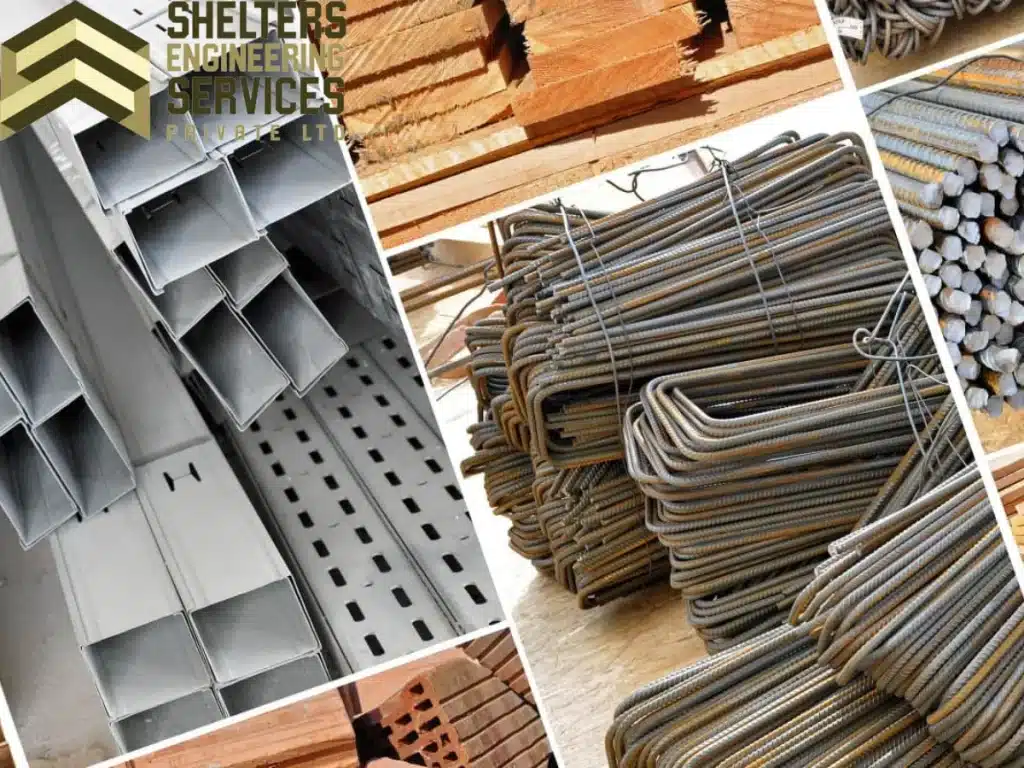Construction Material Prices in Pakistan: A Deep Dive into Costs and Trends
Building a home or undertaking any construction services in Pakistan requires careful financial planning, especially with the ever-changing prices of construction materials. The cost of materials can make or break a project’s budget. Therefore, whether you’re a homeowner, contractor, or simply interested in the construction industry, understanding the current trends and volatility of construction material prices in Pakistan is very important.
This blog post takes you beyond the usual information found online. We’ll uncover the factors driving price fluctuations, analyze the latest trends, and offer practical tips for managing construction costs in Pakistan.
Why Do Construction Material Prices Fluctuate?
To understand the dynamics of construction material pricing, let’s explore some key contributing factors:
- Economic Conditions: Pakistan’s economy plays a significant role in the stability of construction material prices. Inflation rates, currency exchange rates against the US dollar, and changes in government policies can all lead to price fluctuations.
- Global Market Trends: Prices of raw materials like steel and cement are often influenced by international supply and demand. Global economic events or disruptions in supply chains can drive up the costs of importing these materials.
- Fuel and Transportation: The cost of fuel and transportation plays a huge role in the prices of construction materials. Rising fuel prices increase the cost of transporting materials from manufacturing sites to construction locations.
- Seasonality: Construction activities tend to peak during certain seasons, leading to increased demand for materials. This can result in temporary price hikes, especially for essential materials like cement and steel.
Current Market Trends and Statistics
Here’s an overview of the recent price trends in Pakistan’s construction material market:
- Cement: Cement, the backbone of construction, has seen fluctuations in recent times. Sources like Shelters Engineering provide up-to-date cement prices across Pakistan, indicating variations based on brand and location.
| Types | DG | Maple | Bestway |
| Price (PKR)/bag | 1060 | 1060 | 1050 |
Steel: The price of steel is another major concern for builders. Fluctuating steel prices are often attributed to the rising cost of raw materials and import duties. Steel prices can significantly impact overall construction costs.
| Types | 60-Grade AF Steel | Amreli Steel | Ittefaq Steel |
| Price (PKR)/ KG | 258 | 265 | 259 |
Bricks and Sand: Bricks and sand remain essential construction materials. While they haven’t experienced dramatic price spikes, consistent increases can add up for larger projects. The availability of river sand might impact its pricing depending on the region.
| Types | Ravi | Chenab | Lawrencepur |
| Price (PKR)/Cubic Feet (CFT) | 35 | 50 | 110 |
| Price/1000 Units | 15000 | 16000 | 19000 |
Other Materials Prices of electrical wiring, plumbing materials, paints, and finishes are also subject to market trends and inflation. It’s important to continuously monitor their price trends across local suppliers.
| Construction Material | Unit | Rates in PKR |
| Aluminium Windows | Per Square Feet | 1100 – 1450 |
| Tiles | Per Square Meter | 900 – 2000 |
| Doors (Plywood) | Per Square Feet | 400 – 800 |
| Steel Iron Bar | Per Kg | 240 – 265 |
| Stone (Marble) | Per Square Feet | 40 – 100 |
| Deformed 60 Grade Iron Bar | per Ton | 88000 |
| Marble | Per Square Feet | 60 – 120 |
| Iron Chokhat | Per Square Feet | 300 – 520 |
Hidden Factors That Influence Prices
While the larger economic and market forces play a major role, some less obvious factors also impact construction material prices in Pakistan:
- Regional Variations: Prices of materials can vary between cities and provinces within Pakistan, depending on local supply, demand, and transportation costs. It’s essential to consider this when sourcing materials and estimating budgets for projects in different locations.
- Unstable Supply Chains: Pakistan’s construction industry occasionally faces disruptions in supply chains due to reasons like political instability or natural disasters. This, in turn, can lead to scarcity and subsequent price hikes of important materials.
- Quality Concerns: The varying quality grades of materials can significantly affect prices. The use of high-quality materials often comes at a premium, while lower-quality alternatives may offer short-term savings but compromise the project’s overall durability and longevity.

Tips for Navigating Construction Costs in Pakistan
- Planning and Budgeting: Meticulous planning is crucial for managing construction costs. Create a detailed budget and timeline, allowing for potential price fluctuations and contingencies.
- Price Comparisons: Conduct thorough market research before purchasing materials. Obtain quotes from multiple suppliers to compare prices and find the best deals.
- Bulk Purchases: Whenever possible, try to purchase materials in bulk to negotiate discounts with suppliers.
- Timing is Key: Stay informed about market trends and consider timing your material purchases when prices are relatively lower.
- Alternative Materials: Explore innovative and cost-effective building materials that might offer similar or improved functionality compared to traditional choices.
- Skilled Labor: Invest in skilled labor to ensure proper utilization of materials, and minimize wastage, reducing overall costs.
A Note on Quality vs. Price
It’s tempting to reduce expenses radically by selecting the least expensive materials. Be that as it may, this may be a false economy. Unacceptable materials can lead to structural weaknesses, costly repairs, and decreased project life expectancy. Finding some kind of balance among quality and cost is fundamental for the drawn out progress of your development project.





